Animal Ethics
Ethics refers to a moral agreement about what is right and wrong. Human-animal relationships and how humans should treat animals are both examined in animal ethics. Animal ethics can be characterised as "arguments about the proper and improper treatment of animals" (. It is a branch of research that examines the appropriateness of animal use in a number of circumstances by determining whether an activity is for the moral good of animals (including humans). It attempts to comprehend nonhuman animal-human moral conflicts by reasoning and knowledge, as well as an analysis of nonhuman animal status ideas. As a result, it addresses the topic of human moral obligation toward nonhuman animals, as well as the quality and amount of care that should be provided. The ethical considerations surrounding the use of animals in research are numerous. In some circumstances, it is thought that the use of laboratory animals may be important to enhance the lives of people, animals, or the environment. At the same time, most people believe that animals have moral status and that how we treat them should be based on ethical concerns.
- Animal Exploitation
- Animal Sentience
- Animals in The Wild
- Defending Animals
- Ethics & Animals
- Human Perspective of Animal Ethics
- Moral Status of Animals
- Use of Animals in Research

Marco Polettini
DVM, Italy
Andreia Freitas
INIAV/REQUIMTE, Portugal
Andreia Freitas
INIAV/REQUIMTE, Portugal
Kedibone Gloria Kgosana
Sefako Makgatho Health Sciences University, South Africa
Nnenna Ugwu
Anglia Ruskin University, United Kingdom
Rubens Dias de Melo Junior
Universidade Federal de Goiás, BrazilSubmit your abstract Today
Important Alert:
X


Title : Analyzing veterinary medicine residues in food: A comprehensive guide
Andreia Freitas, INIAV/REQUIMTE, Portugal
Title : Quantifying changes in facial expression following hot-iron disbudding under procaine hydrochloride and meloxicam treatment in Holstein dairy calves
Nnenna Ugwu, Anglia Ruskin University, United Kingdom
Title : Trypanosoma vivax in and outside cattle blood: Parasitological, molecular, and serological detection, reservoir tissues, histopathological lesions, and vertical transmission evaluation
Rubens Dias de Melo Junior, Universidade Federal de Goiás, Brazil
Title : Characterization of porcine rotaviruses in the Czech Republic
Romana Moutelikova, Veterinary Research Institute, Czech Republic
Title : Determination of Circulating Foot-and-Mouth Disease Virus Serotypes in Kenya (2023)
Hellen Mutua, Foot and Mouth Disease National Reference Laboratories, Kenya
Title : Welfare for Amazonian wild animals
Eliane Cardoso Carvalho Moraes, Jungle Warfare Training Center/ Army, Brazil